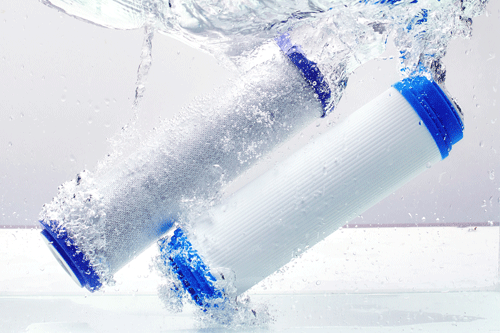Product added to cart


When it comes to ensuring the quality and safety of our drinking water, carbon filters play a crucial role. Carbon filters are widely used in water filtration systems due to their excellent ability to remove contaminants, chemicals, and odors, resulting in clean and great-tasting water. In this comprehensive guide, we will explore the various carbon filter types commonly employed in water filtration to help you make an informed choice for your household's needs.
1. Block Carbon Filter
Block carbon filters are solid blocks of activated carbon that efficiently remove impurities by adsorption. These filters have a larger surface area compared to granular filters, allowing them to trap more contaminants. They effectively eliminate chlorine, volatile organic compounds (VOCs), pesticides, and other common water pollutants. Block carbon filters are known for their exceptional efficiency and longevity, providing long-term, high-quality filtration.
2. Granular Activated Carbon (GAC) Filter
GAC filters consist of loose granules of activated carbon. These filters are highly porous and have a vast surface area, enabling them to effectively remove a wide range of organic and inorganic compounds, including chlorine, benzene, and heavy metals like lead and mercury. GAC filters are commonly used in point-of-entry and point-of-use water filtration systems.
3. Impregnated Carbon Filter
Impregnated carbon filters are specifically designed to target and remove specific contaminants from the water. They are made by impregnating the activated carbon with certain chemicals or substances, enhancing their adsorption properties. For example, impregnated carbon filters can effectively remove chloramines, hydrogen sulfide, or other stubborn impurities that standard carbon filters might struggle with.
4. Silver-Infused Carbon Filter
Silver-infused carbon filters are equipped with silver particles embedded within the carbon structure. Silver is known for its antimicrobial properties, making these filters effective at inhibiting the growth of bacteria and other microorganisms in the water. Silver-infused carbon filters are especially useful in preventing bacterial contamination and providing an additional layer of protection for safe drinking water.
5. Scale Removal Filter
Scale removal filters are unique carbon filters designed to address water hardness caused by mineral deposits, such as calcium and magnesium. These filters work through a process called ion exchange, where the minerals causing hardness are replaced with sodium ions, reducing the scale buildup in pipes and appliances. Additionally, scale removal filters help enhance the lifespan and efficiency of other water filtration components in your system.
In conclusion, carbon filters are a vital component of water filtration systems, and the type of carbon filter you choose can significantly impact the quality of your drinking water. Block carbon filters offer longevity and excellent general filtration, GAC filters effectively remove a wide range of contaminants, impregnated carbon filters target specific pollutants, silver-infused carbon filters provide antimicrobial protection, and scale removal filters tackle water hardness issues.
Before selecting a carbon filter, consider the specific contaminants present in your water and the filtration requirements of your household. By choosing the right carbon filter type, you can ensure a consistent supply of clean, safe, and great-tasting water for you and your family.